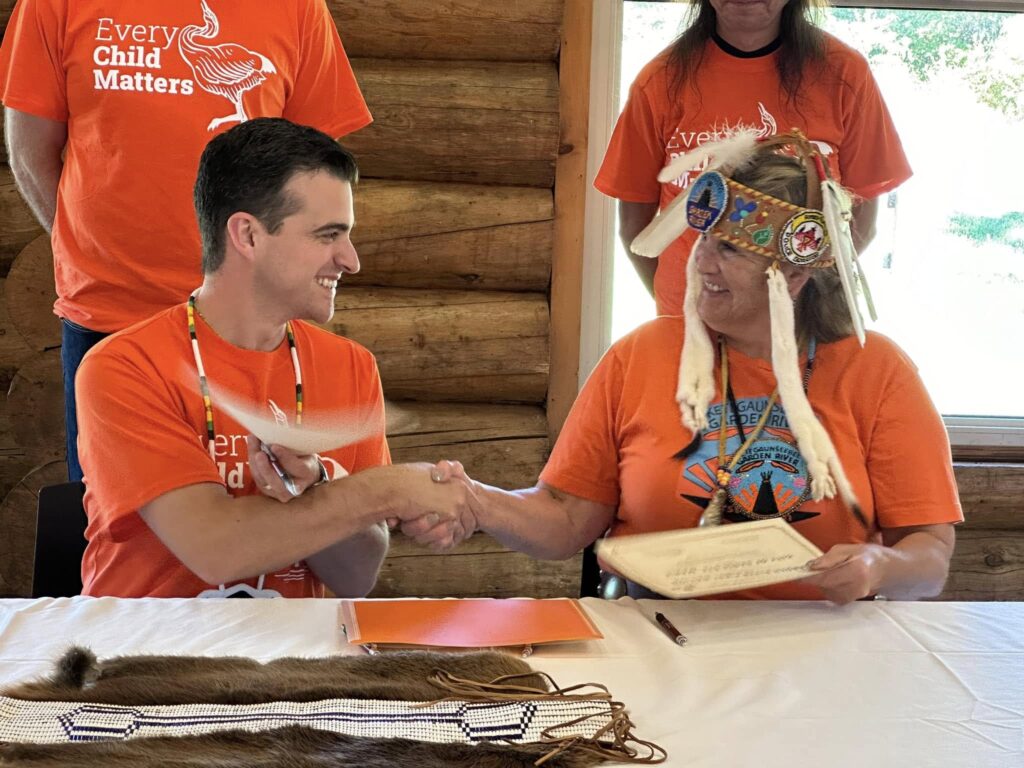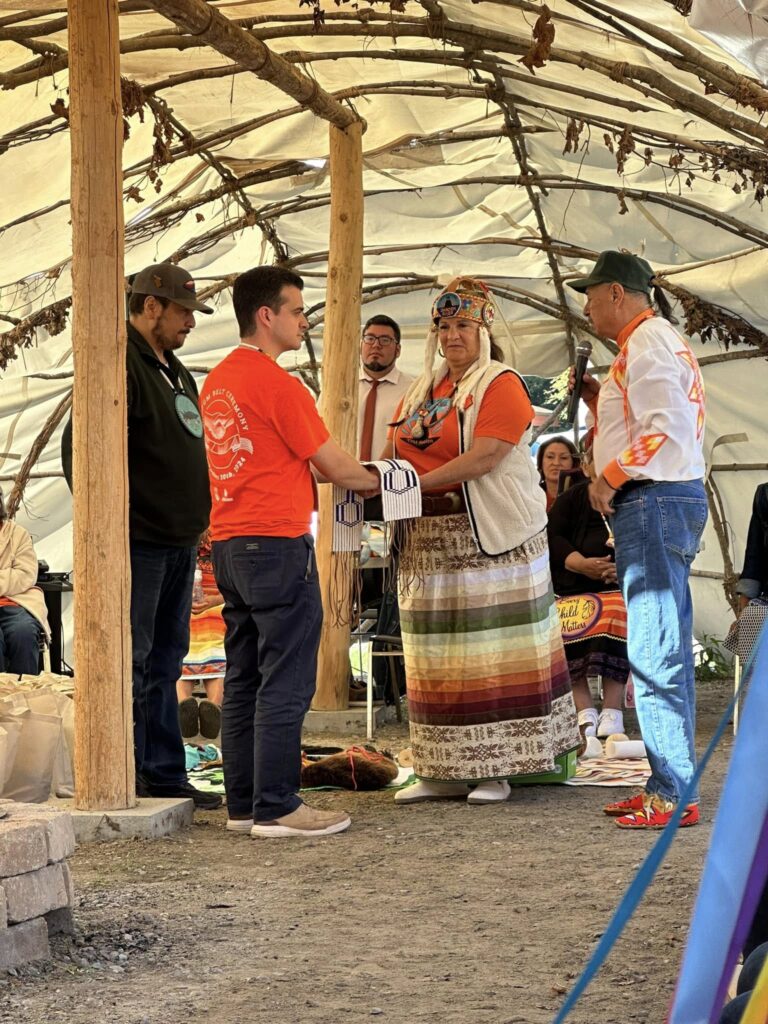Sault Ste. Marie's Commitment to Reconciliation
The City of Sault Ste. Marie recognizes its important role in advancing reconciliation with Indigenous Peoples. As a municipal government serving the people of this region, the City delivers critical community services, supports regional infrastructure and planning, and actively works to foster relationships built on respect, recognition, and partnership.
The Summary of the Final Report of the Truth and Reconciliation Commission of Canada on Indian Residential Schools states:
“Reconciliation requires that a new vision, based on a commitment to mutual respect, be developed.”
This principle guides the City of Sault Ste. Marie in its reconciliation journey. We are committed to fostering a respectful and collaborative relationship with Indigenous communities, including Batchewana First Nation and Garden River First Nation, whose traditional territories include the land on which our city is situated.
Our commitment to reconciliation is embedded in both our internal culture and external initiatives. The City strives to view its policies, projects, and planning through a reconciliation lens, and to ensure early, meaningful, and ongoing engagement with Indigenous partners. This includes:
- Advancing truth-telling and education at the site of the former Shingwauk Residential School.
- Collaborating with local Indigenous communities on place-making, cultural programming, and land-use planning projects, such as Indigenous land acknowledgments throughout City facilities and events.
- Providing cultural competency and anti-racism training for City Council, staff, and community stakeholders.
- Participating in and supporting local events that promote Indigenous voices, such as National Indigenous Peoples Day, Orange Shirt Day, and the annual Gathering at the Rapids Pow Wow.
In 2021, City Council passed a resolution in support of the Truth and Reconciliation Commission’s Calls to Action, committing the municipality to ongoing learning and partnership. As part of this commitment, the city is also exploring ways to incorporate Indigenous perspectives in long-term planning, environmental stewardship, and youth and cultural programming.
Baawaating Advisory Circle
The Baawaating Advisory circle established in the summer of 2018, includes representatives from Batchewana First Nation, Garden River First Nation, Historic Sault Ste. Marie Metis Council, Metis Nation of Ontario, Youth Council, Indian Friendship Centre, Sault College Indigenous Students Sacred Native Student Council, Algoma University Anishinaabe Initiatives, and Children of Shingwauk Alumni Association.
The circle has been assigned the following mandate:
- to seek input along with the input from other First Nation leaders, representatives, and community partners on community plans
- to strengthen our own (advisory circle) relationships and the relationship between the First Nation community and the larger community
- to acknowledge and discuss truth and work towards reconciliation
- to seek advice, input, and guidance on how the city can implement the recommendations from the final report issued by the Truth and Reconciliation Commission
- to celebrate this area, its history, and the tremendous culture of the First Nation communities and people.
A Wampum Belt Ceremony

Garden River First Nation and the City of Sault Ste. Marie have completed a Cultural Competency project, made possible through the Community Support, Multiculturalism and Anti-Racism Initiative funded by the Department of Canadian Heritage. This initiative fostered deeper relationships and enhanced understanding between Garden River First Nation and Sault Ste. Marie.
Through this project, a comprehensive set of cultural competency workshops tailored for both Garden River First Nation and Sault Ste. Marie staff and leadership took place. The program has proven to be pivotal in strengthening our collaboration and deepening mutual respect and understanding.
A Wampum Belt Ceremony featured the exchange of a wampum belt and gifts between Chief Bell and Mayor Shoemaker, symbolizing the strong bond and mutual respect between the communities.
Friendship Accord
Garden River First Nation (Keetegaunseebee) and the City of Sault Ste. Marie (Bawaating) have graduated from the First Nation-Municipal Community Economic Development Initiative (CEDI) program with the historic signing of their Friendship Accord.
The graduation and signing ceremony mark the culmination of a transformative two-year journey of collaboration and trust-building under CEDI, a national program co-delivered by the Federation of Canadian Municipalities (FCM) and Cando. As one of only eight partnerships selected for Phase 3 of the program, Garden River First Nation and the City of Sault Ste. Marie have worked diligently since early 2023 to foster Reconciliation, strengthen their partnership, and develop shared economic and cultural goals.
The Friendship Accord represents a historic commitment to ongoing collaboration and mutual respect between Garden River First Nation and the City of Sault Ste. Marie. Rooted in the shared stewardship of the St. Mary’s River, the Accord incorporates cultural and environmental priorities while outlining actionable steps for economic development, anti-racism initiatives, and youth engagement. Both communities emphasize that this is not the end of their partnership but the beginning of a deeper journey of unity and shared vision.
